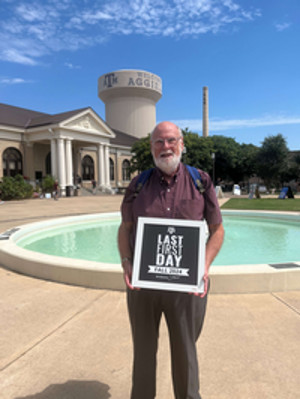Introduction
Dr. Conrad’s teaching and research encompass Organizational Communication, Organizational Rhetoric, and Communication, Power, and Politics. His work focuses on the symbolic processes through which organizations influence popular attitudes and public policies.
Biography
Teaching Philosophy:
I never have really understood what is supposed to be included in a “teaching philosophy.” The ones I have read are akin to organizational “mission statements”—so vague that they don’t elicit any criticism and can be used by anyone to justify almost anything. Communication professors also are tempted to accept the popular notion that all problems result from “a failure to communicate,” since it makes our field seem more important than it actually is. If your boss is an unethical jerk, “communication skills training” isn’t going to change that; if your organization is a hopelessly inefficient bureaucracy, improving communication might help, but it’ll still be a hopeless bureaucracy. So, as Socrates was wont to say, the most important attribute that a teacher should have is humility, and it’s also the most important value for them to teach. The second attribute teacher should have and should teach is to be reflexive, that is, to understand what one actually does believe, what one’s core values are, and how one makes sense of the world around her or him. Education has a conservative function in that it reproduces the dominant values and beliefs of a society and thereby legitimizes it. But teaching also is capable of transforming those values and beliefs by encouraging people to question the assumptions that society treats as natural (which usually means “inevitable”) and “normal” (which means both “typical” and “morally correct”). Most of my students know exactly what they believe, but they don’t know why they believe it, and few of them have carefully thought about the extent to which their beliefs are consistent with one another, or with the “real world” around them. This doesn’t mean that teachers have an automatic license to pontificate to student-masses; indeed, it means that the one thing teachers ought not do is pontificate. Teaching also should be practical, both in terms of skill development and in the broader sense of achieving what the ancient Greeks called arete, excellence. Life is full of moral mazes, of situations in which one has to choose between what is right and what is expedient. Most “ethics training” seriously underestimates the difficulty of making these choices More than anything else, education should provide what symbolic theorists Kenneth Burke called “equipment for living,” not only during the best of times, but also during the worst.
University Activities:
- Faculty Sponsor, Explorations: The Texas A&M Undergraduate Journal. Texas A&M Honors Program.
Courses Taught
Research Interests
- Humanities & Critical/Cultural Studies
- Organizational Communication
Selected Publications
- Charles Conrad & Michael Solitto (In Press). History of organizational communication. In International Encyclopedia of Organizational Communication, Craig Scott & Laurie Lewis, eds. Oxford: John Wiley & Sons.
- Charles Conrad & Jonathan Shipley,“Ethics of Reputation Management,” Encyclopedia of Corporate Reputation, Craig Carroll, ed. Thousand Oaks: CA, In Press.
- Charles Conrad & Andrea Terry, “Strategic Communication,” International Encyclopedia of Political Communication, vol 3. Gianpietro Mazzoleni, et al., eds. London: Wiley-Blackwell, 2016
- Charles Conrad, “Organizational and Public Policy Barriers,” Encyclopedia of Health Communication, vol 3 (p. 1077). Teresa Thompson & Geoffrey Golson, eds. Thousand Oaks, CA: Sage, 2014.

